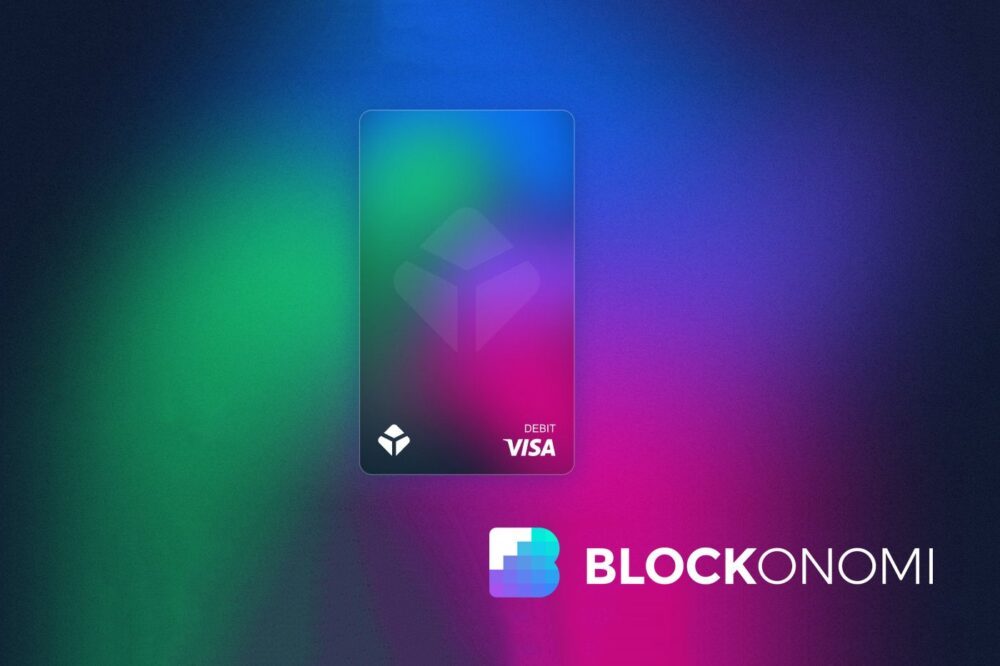
Blockchain.com, one of the world’s largest and oldest crypto exchanges, has announced the launch of its crypto debit card in a strategic partnership with the payment giant Visa.
The rollout will target the US market, enabling Blockchain.com’s customers to shop and pay using their crypto or cash holdings at any merchants worldwide accepting Visa debit cards.
According to the press release, the Blockchain Visa-branded card lets customers spend their crypto or cash with no fee. The platform will not charge subscription fees or recurring fees.
In addition, the newly launched product will offer a 1% crypto cashback on each purchase to encourage people to use it.
Introducing the https://t.co/0DZyULavbV Visa® Card.
✅ Spend your crypto or cash without fees
✅ Use it anywhere Visa® debit cards are accepted
✅ Earn 1% back in crypto on all purchasesJoin the waitlist todayhttps://t.co/JB9NxcePfS pic.twitter.com/ftLck1dmYz
— Blockchain.com (@blockchain) October 26, 2022
More Ways to Spend Crypto
Although the product only serves the US market at the launch, the company states that it will be expanded globally from 2023.
Commenting on the collaboration with Blockchain.com, Cuy Sheffield, head of cryptocurrency at Visa highlighted that the company has strong belief in crypto adoption.
The partnership with Blockchain.com will offer customers more ways to use their crypto for everyday shopping.
Speaking with Yahoo Finance, Blockchain.com CEO Peter Smith said there are currently 50,000 customers joining the waiting list for debit cards, noting: “There’s still a lot of demand for crypto products, but you’re seeing that demand shift away from trading and more towards folks that are interested in using DeFi, using their balances.”
Mainstream Options
The new card’s processor is California-based Marqeta, which also worked on the Swipe crypto visa card that launched in September 2020.
Blockchain.com follows a series of crypto exchanges that previously joined forces with payment giants to roll out crypto-friendly debit cards, including FTX, Binance, Coinbase, and BlockFi.
Earlier in October, FTX and Visa announced their partnership to launch crypto debit cards in more than 40 countries across Latin America, Europe and Asia.
On October 25, MasterCard, Visa’s key competitor, inked an agreement with UAE-based cryptocurrency trading platform BitOasis to roll out a series of crypto card programmes to drive crypto adoption in the region.
The surging demand in cashless payment, coupled with the increased interest in cryptocurrency, has motivated a number of leading figures in cryptocurrency such as Binance, Coinbase, Crypto.com, Blockchain.com to seize the opportunity.
The value of cryptocurrencies in portfolios all across the world is rising swiftly. Cryptocurrencies currently in existence are worth about $1 trillion, and their value is potentially increasing.
Traditional financial services have seen opportunities arise as a result of the interest.
Businesses and startups quickly noticed and started using crypto to draw in new clients. Many issuers provide cards with tempting incentives in cryptocurrency rather than providing travel benefits or money on purchases.
In 2018, a very early period, Crypto.com launched more than 100,000 bitcoin Visa debit cards to consumers internationally.
However, users weren’t urged to embrace cashless payment methods in order to reduce exposure across all activities until the pandemic began in 2020. The demand for cashless transactions, particularly with credit and debit cards, has grown up to this point.
Debit cards for cryptocurrencies were developed so that users could spend money straight from their cryptocurrency holdings, simplifying day-to-day transactions. It functions exactly like a standard debit card but with cryptocurrency as the payment method.
Users can make purchases directly from designated accounts without going through a long process of getting withdrawals.
When it comes to crypto debit cards, availability and taxation are two key problems. Many card issuers limit services by geographic location, like the European-only Binance debit cards. A major problem is availability, particularly for those who are outside the support zone.
Americans may be familiar with the challenges associated with cryptocurrency tax. Users of debit cards must pay taxes on their purchases since the IRS sees these as property rather than money.
- Bitcoin
- blockchain
- blockchain compliance
- blockchain conference
- Blockonomi
- coinbase
- coingenius
- Consensus
- crypto conference
- crypto mining
- cryptocurrency
- decentralized
- DeFi
- Digital Assets
- ethereum
- fintech
- machine learning
- non fungible token
- plato
- plato ai
- Plato Data Intelligence
- Platoblockchain
- PlatoData
- platogaming
- Polygon
- proof of stake
- W3
- zephyrnet













